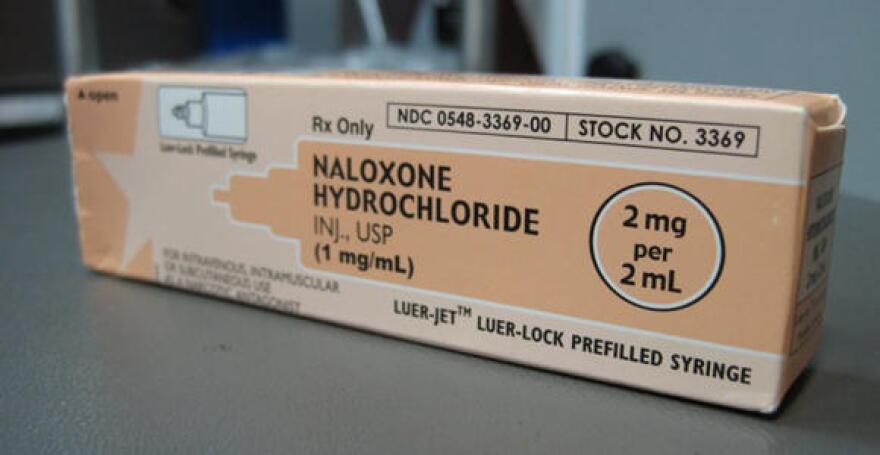The interim chief of the St. Louis Metropolitan Police Department asked the city’s Board of Aldermen on Wednesday to find money for hiring more officers and providing better pay. Liberal activists, however, want city leaders to ignore the drumbeats of demands for more officers and instead find funding for social services that could help stem crime.
The request from the police department will be competing with other urgent public safety needs, including funds for the drug Narcan, which reverses opioid overdoses.
Overall, the budget for the public safety department is projected to increase by about $2 million for the fiscal year that starts in July. The SLMPD, the largest department within that budget, is already driving most of the increase.
Interim Chief Larry O’Toole told the Ways and Means committee that his No. 1 issue is hiring and keeping officers, because it “directly impacts our ability to provide the policing services that our citizens expect.” He did not have a number immediately available for how much money would be needed to increase pay for the various ranks, from patrol officers to command-level staff.
Complicating the situation is a planned raise for St. Louis County police. The gap between the starting salary for a county officer and an SLMPD officer is already about $5,000 a year. When the county starts collecting money from a sales tax increase approved in April, the gap could reach $9,000 a year.
“I’m trying very hard to create a good working environment for our officers to encourage retention,” O’Toole said. “But we really need to offer our officers and future recruits some sign we’re moving in a direction to make us competitive as far as compensation.”
Mayor Lyda Krewson said the city is looking to find money for raises.
“We expect that some of it will come from within city funds, perhaps some of the increase in the use tax” that voters approved in April, Krewson said at an unrelated news conference Tuesday, adding that the city’s budgeting process is “collaborative.”
But, Krewson said, the city is also exploring new money as well to cover the cost.
“We were a couple of weeks ago in Jefferson City talking to folks about the possibility of getting authorization for a property tax increase,” she said. Any such tax increase would require voter approval.
The constant demand for more funding has caught the attention of activists like Lisa Cagle, who lives in the Tower Grove East neighborhood.
“Imagine if the 57 percent of our general fund budget that is currently spent on public safety was spent on the issues that lead to crime,” Cagle told the committee at a public hearing last week. “With an ever-widening gap between the haves and the have-nots, and a shrinking middle class, crime isn’t going to go away magically, and policing alone will not solve this problem.”
O’Toole said Wednesday that he would welcome more spending on social services.
“I’m 100 percent when social services agencies want to take part, and get more involved in the issues that are going on in the city of St. Louis,” he said. “Ultimately, that should reduce some of our calls for service. But we still need officers because social service agencies, they’re not out there 24 hours a day.”
Fire department funding
Also Wednesday, St. Louis Fire Chief Dennis Jenkerson asked aldermen to not reduce his budget for the drugs and medicines that firefighters and paramedics need, especially as the number of overdoses they have to treat rises.
Jenkerson asked for $155,000 in the budget that takes effect in July, but the city so far plans to keep that amount at $130,000.
The department is on pace to spend $100,000 this year just on Narcan, the drug that helps reverse opioid overdoses, he said. Already, the department is using about 170 doses of Narcan a month in 2017, compared to 160 doses a month in 2016 and 98 doses a month in 2015.
Some of that increase is due to more overdose patients, he said, though some is also due to the fact that more doses are needed to revive patients because the drugs they are taking are stronger.

“All these drug companies realize that we’re running a lot of heroin overdoses, other types of overdoses. They have realized that the EMS are the primary care providers for the city of St. Louis,” Jenkerson said.
Alderman Sam Moore, D-4th Ward, asked Jenkerson whether the department was sending the wrong message to individuals with opioid addiction by using Narcan.
“My nephew is 37 years old. He’s a heroin addict,” Moore said. “So I asked him the other day, how is he doing with his habit, and he said he wasn’t worried about it because the firemen are going to save his life when he overdosed.”
Jenkerson called Moore’s question a difficult, and very good, one.
“To me, as a firefighter, as a first responder, as somebody who cares about life, I’ve got to respond. I’ve got to try and save somebody’s child, save somebody’s nephew, brother, mother, whatever,” he said. “I don’t know how they got hooked on the product, but it’s everywhere.”
The Ways and Means committee will finish hearing testimony from individual departments on Thursday. Its chairman, Alderman Steve Conway, D-8th Ward, said members will start considering where to add and subtract money next week.
Follow Rachel on Twitter: @rlippmann






